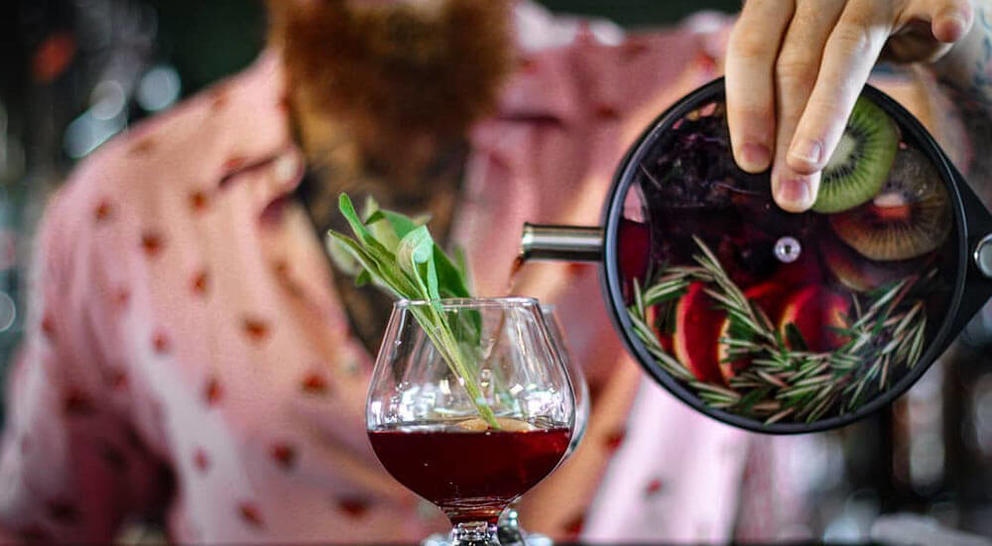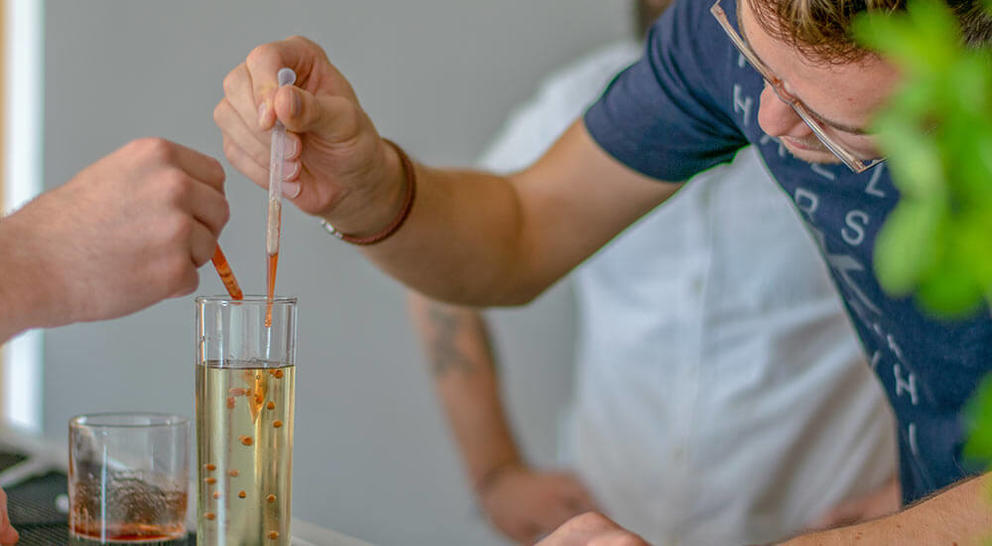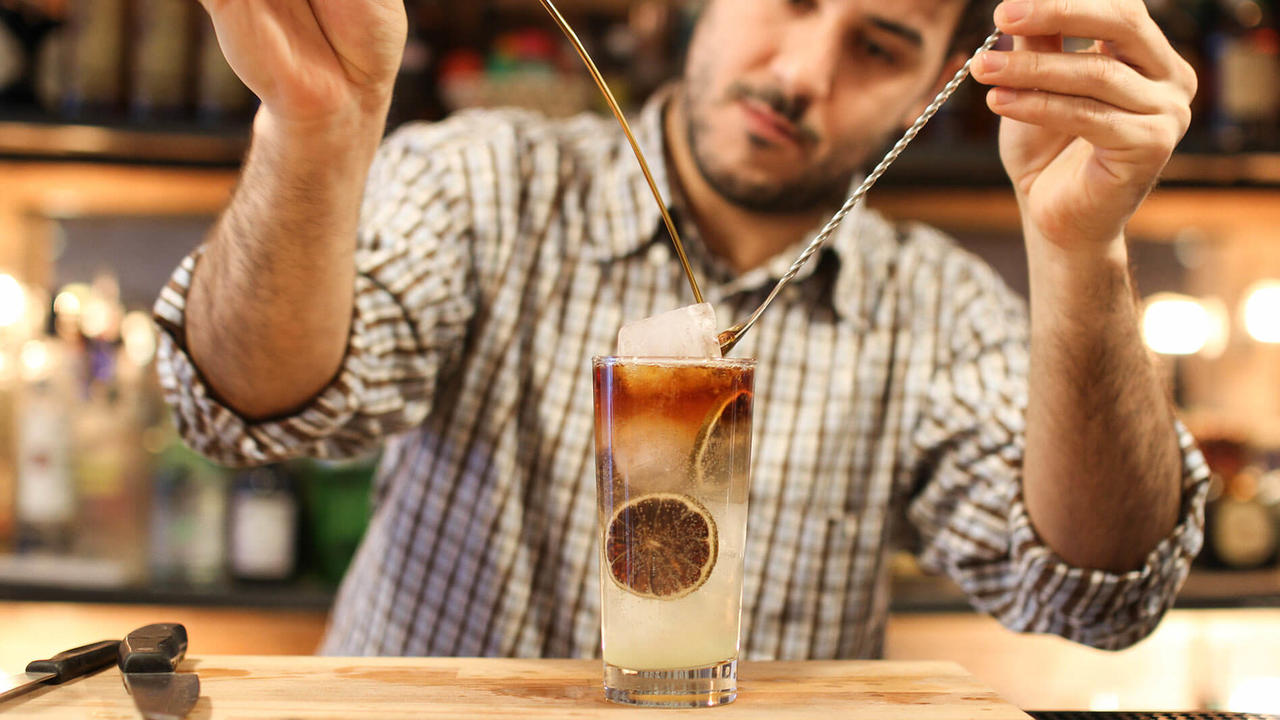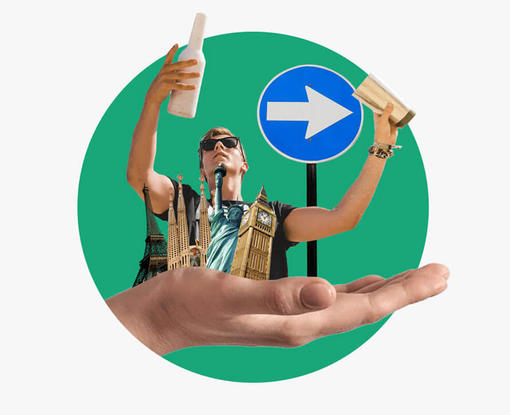Given its steep rise in popularity recently, you’d be excused for wondering, ‘what is mixology?’. It’s fast becoming a well-respected and sought-after profession within hospitality, propelling cocktail creativity to the forefront of industry minds. Discover the history, definition of mixology, plus our tips on how to become a mixologist…
What is mixology?
Mixology is the skill of mixing cocktails with different flavours and methods. It uses an almost-scientific approach when making unique craft cocktails. It's an exclusive artform and only those with a deep understanding of flavours, drinks and bartending succeed in it.
Expanding on this simple mixology meaning, it's about understanding and pairing flavours and textures. Partner this with experimental pieces of equipment and it truly qualifies as 'mixology'. It's way more than making the classic cocktails!
What is a mixologist?

The meaning of a mixologist is someone who is highly skilled in mixology. Mixologists are responsible for crafting revolutionary cocktails and forging a new path within cocktailing. A great deal of studying is put into learning this art, as well as the practical work.
It’s more than simply making a classic cocktail, it’s about ‘changing the game’. Mixologists must hold an extensive knowledge of the ingredients and techniques surrounding bartending, way beyond that of a regular bartender.
Mixologist vs bartender: What's the difference?

The difference between a mixologist and bartender lies in the ‘making’ and ‘creating’ of drinks. A bartender makes and prepares mixed drinks that the bar has already set. A mixologist creates these mixed drinks recipes for the bar, which the bartender then makes.
Bartenders are also responsible for the more practical aspects of the bar like hygiene, stock and the customers.
According to cocktail luminary and writer, Gary Regan, "a mixologist will make an amazing cocktail that you will remember that night, whereas a bartender will make an amazing night for you that you will remember forever". But this is a more philosophical way to look at the bartender vs mixologist debate.
They’re similar roles but there’s, ultimately, a difference in responsibility and expectation.
History of mixology
Mixology may seem like a new form of art, only recently becoming fashionable but it actually has roots back to the nineteenth century, first appearing in a published piece of text in 1862.
Less than 10 years later, the ‘mixologist’ was a profession on the U.S. government register with people flocking to bars to see them work their magic. It was these years that saw the biggest expansion of mixology and its official birth. Some, however, say the 1600s were its origins, with some of the first creations of mixed drinks like Cobblers. Whilst this is true, the idea of mixology and how we know it, has much more resemblance to the cocktailing culture of the 1800s.
Its popularity was born out of the rise of distilled spirits, or rather the standardisation of spirit distillation. By the 1950s and 1960s, cocktail culture was starting to explode again in the USA and so too did mixology.
But it was a post-prohibition America that gave life back into mixology and created what the artform lives off today.
How to become a mixologist - 4 top tips

Want to become a mixologist? Here are our top tips to becoming the best mixologist you can be. It’s all about becoming more adept at bartending and expanding your knowledge, so here are four expert tips to becoming a mixologist…
1. Learn from others
Speak to people who know a thing or two about mixology. If possible, see if you can find a mentor or at least someone who is willing to share some of their time and expertise. Questions are the keys to knowledge.
2. Don’t limit yourself
Rather than sticking to a particular set of ingredients that may be the most familiar, consider that mixology is a limitless spectrum of tastes that can be found in spirits, liqueurs and flavourings from all different places. Mix drinks with ingredients you wouldn't normally work with. Mixology is about pushing the boundaries of bartending.
3. Know your tools
The best mixologists use the best equipment, so don’t settle for less. Invest in some quality bar tools from a well-respected seller and grow your collection of bartender basics. The last thing you want is a Cobbler Shaker that leaks your perfectly mixed drink all over the bar. Stick to quality. Research the best bartender kit and you won't go wrong!
4. Be creative
In this game you need to be innovative and inventive. It’s not enough to know about the classic cocktails. Mixologists need to be taking these cocktail recipes and crafting something inspiring. A mixologist thinks outside the box and is versatile with different ingredients to make elegant drinks in taste and style.
Mixology is such a broad and colourful wing of cocktailing with so much to explore. It will take you on an amazing journey of discovery to find the best flavours and ingredients. Here at European Bartender School, we offer a Mixologist Course. Click the link to find out more about this great opportunity and start your mixology career…
What is molecular mixology?

Enjoy both science and cocktails? Molecular mixology is definitely for you! This is a brand of mixology that approaches cocktail making through exploring molecular gastronomy. This form of mixology looks into the physical properties of the ingredients, ice and glass, too. However, just like any form of mixology, the main focus is on flavours and presentation.
Molecular mixology uses a range of substances like powders, foams, gels and atomised sprays, to create pioneering and innovative cocktails. It’s all about the science and understanding how different substances interact with each other.
Though they’re no longer labelled as such these day, the layered cocktail is an example of molecular mixology, making use of the different densities and viscosities of the ingredients.
Start some mixology at home with these two delicious syrups. The homemade falernum recipe and Oleo Sacchharum recipe are two great syrups a mixologist should have!
Looking to get into bartending? Want to make it big behind the bar? Start here, with us, with our bartender course!

